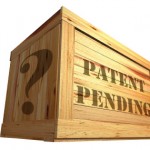One of the first questions start up entrepreneurs usually ask sounds something like this: “Is it worth the effort and expense to get a patent on this business idea?” In countless conversations with clients in my years as a patent attorney, I could usually articulate multiple reasons why the person seeking to to start a new business venture unequivocally needed to file a patent application as soon as possible. Moreover, I could recite a litany of ills that could follow from failing to follow my advice. Following this conversation, I could typically expect a fat check from the client, whereupon I would dutifully draft strong patent on the subject invention. It was a nice living. These days, I work as a startup technology company CEO and look at patents much differently than I did in the past: as a consumer of patent services myself, I now examine patenting issues from
Lean Startup Methodology: How Patenting Decisions Fit into this New Business Framework
Patents–Who Needs Them? Not Most Startup Entrepreneurs.
 A recent article in TechCrunch indicates that entrepreneurs are less likely to file patents than in the past. Nonetheless, there remain countless patent lawyers and agents who will argue convincingly that an entrepreneur must obtain a patent in order to succeed and who will take their $5-15K to file a darned good patent application that won't provide them a bit of business value in the long run. Even worse, the resources expended in the patent process robs the entrepreneur of needed cash that will allow them to gain customers, and of their most valuable asset: time. But when the only tool you have is a hammer, everything looks like a nail--which is why those still in the business of writing patent applications will continue to make their case to entrepreneurs (and investors) who lack the domain expertise to
A recent article in TechCrunch indicates that entrepreneurs are less likely to file patents than in the past. Nonetheless, there remain countless patent lawyers and agents who will argue convincingly that an entrepreneur must obtain a patent in order to succeed and who will take their $5-15K to file a darned good patent application that won't provide them a bit of business value in the long run. Even worse, the resources expended in the patent process robs the entrepreneur of needed cash that will allow them to gain customers, and of their most valuable asset: time. But when the only tool you have is a hammer, everything looks like a nail--which is why those still in the business of writing patent applications will continue to make their case to entrepreneurs (and investors) who lack the domain expertise to
A Startup Company’s Experiences with Open Innovation-Part 2: Adventures of a Chief Frog Kisser
A Startup Company’s Experiences with Open Innovation-Part 1: Dealing with a Large Company Having Small Innovation Goals
For the past several months, I have been at the helm of Evgentech, a startup company with game-changing battery charging methodology. Our technology was developed by young men who did not come from a traditional engineering background and, even then, their discovery was a serendipitous result of the co-founders’ recognition of a new principle stemming from investigations initially directed toward something wholly different from battery charging. Put simply, Evgentech’s technology would not have been found if anyone--outsider or not--would have been looking for it. We are now bringing to market the first truly new battery charging paradigm in over 100 years. To put things in perspective, with Evgentech's technology, you will be able to charge your batteries in a fraction of the time possible with existing battery charging methodologies, which means you can charge your iPhone to "full" in as little as 20 minutes, as compared to the about 3-5
Facebook’s “Trademark Bullying” Should Serve as an IP Strategy Lesson for Startup Entrepreneurs
This week, Facebook's trademark action against a small online teaching company has been all over the news. In summary, Facebook contends that TeachBook infringes its trademark rights in the "Facebook" name because, presumably, the "book" part of the name is associated in the minds of the relevant consumer public with the now well-known Facebook brand. Today, it was reported that Facebook is now trying to own the rights to the "face" part of its name. Most wouldn't be surprised that the word "book" is used as a part of the name of a multitude of products and services, which would make it appear that Facebook is using its resources to beat up on smaller companies. The natural response from the layperson is "why is Facebook being such a trademark bully?" But to someone with experience in IP strategy, the business reasons behind Facebook's actions are clear. From a legal perspective,
Contrarian Viewpoint: Patents Likely Matter Little to US Innovation and Job Creation
Many experts insist that innovation cannot succeed without patents, and that the delays in the US Patent Office stifle innovation. This viewpoint is like to become more widely believed by the public as US Patent Office Director Stephen Kappos sees a way to improve the dismal operations of the Patent Office by equating patents as job creation tools, which necessarily requires patents to be asserted as critical for innovation to occur. I believe it is highly misleading, and even harmful in many cases, to say that patents are the end-all be-all to innovation. I also think that fixing the Patent Office--which will invariably mean that more people will see value in obtaining patents to support their business idea--should be viewed more as a job creation engine for patent attorneys and those who support them (including Patent Office employees), as opposed to creating jobs that can help improve the
IP Strategist on the Radio: 2 Recent Interviews
As my consulting practice becomes ever more busy, blogging must be relegated to times when client work is not pressing--that ever-elusive free time. But now that Summer is here, free time has been hard to come by--it's hard to write when at the pool with the kids or driving to Grandma's house--but I haven't been totally giving up my outreach. I recently participated in 2 radio interviews where I discussed the value of IP Strategy for entrepreneurs and inventors. Here I was on the 40 Year Old Business Virgin Radio Show with Dave Savage, Leader and President of The Inventors Association of Georgia and a person named Mohamed who has a really cool entrepreneurial story (sorry I didn't get his last name). The hosts of the show, Kile Lewis and Ted Jenkin, are irreverent business advisors, and you should enjoy the show. (I appear in the first half).
How the Northeastern Indiana Amish Serve as a Business Lesson about Patents
I have been spending time in Northeastern Indiana--the land of my roots--to introduce my children to their aunts, uncles and many, many cousins. Catching up with extended family has made it difficult to formulate a post in the past couple of weeks, but I have a few moments this morning and wanted to capture a thought that has been rattling around in my head since I arrived here. Anyone who has spent time in this part of the U.S. will be familiar with the presence of the Amish as part of the cultural landscape. My children, as city kids, are fascinated whenever they see a carriage with families traveling along the side of the roads. However, I invariably consider about how stifling I would find it to not be able to interact with the outside world in the way that is familiar to me. In short, I wonder what it
New Study Reinforces Value of Patents in Venture Capital Investment
Regular readers of the IP Asset Maximizer Blog will know that I am a strong advocate of the use of IP analytics by venture capital investors, as well as others. Clearly, VC's need better ways to gauge the appropriateness of an investment when more than 50% of venture investment is a loss. My point of view is based on personal experience with various clients, as well as external review of a few investments that I thought signaled that a review of the IP landscape should have been conducted prior to completing the deal. So, I was glad to see my opinions backed up by real data. Specifically, my friends at IP Vision, a patent landscaping and data company originally out of MIT, conducted an extensive study of 9,000 venture backed firms. The study was done with investors, corporate executives and members of the faculty at Read More
9 Out of 10 Patents are Probably Worthless: Why and How to Prevent this from Happening to You (Part 1 of 4)
 I decided to start 2010 with a controversial premise: what if 9 out of 1o patents--or 90 %-- issued in the US were worthless? Believe it or not, but this probably is not too far off the mark. By "worthless," I mean that it is likely that only 10% of patents in force today meet each (and every) of the below criteria:
I decided to start 2010 with a controversial premise: what if 9 out of 1o patents--or 90 %-- issued in the US were worthless? Believe it or not, but this probably is not too far off the mark. By "worthless," I mean that it is likely that only 10% of patents in force today meet each (and every) of the below criteria:
1) The patent directly or indirectly protects a product or technology that is being sold in the market today;
2) The patent covers a product or technology where there is or likely will be viable competition in the marketplace such that a patent is needed to legally restrain competition; and
3) The patent owner is ready, willing and able to bring a patent infringement suit against an infringer or it is likely that your competitor believes that it will possibly do so.
Unless

